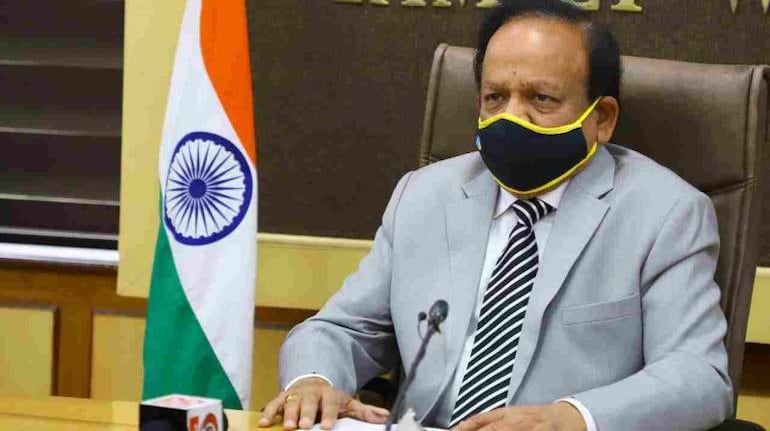



India will be in a position to vaccinate at least all of its adult population by the end of 2021, Health Minister Harsh Vardhan said on May 21. During a meeting on the COVID-19 situation with representatives of nine states and union territories, Vardhan said that between August and December 2021, India will have procured 216 crore vaccine doses, while by July this year, 51 crore doses will be procured.
The minister also said that daily recoveries have outnumbered the daily new COVID-19 cases for the last eight days consistently. "India is observing less than 3 lakh cases from the last five days," he said, adding that in the last 24 hours, India conducted the highest ever 20,61,683 tests with the cumulative tests being over 3,30,00,000.
Track this LIVE blog for latest updates on coronavirus pandemicAccording to a statement from the health ministry, Vardhan also touched upon the speculation that the virus might mutate in future and endanger children, and said that the health facilities are being upgraded to deal with any such exigency.
He also cautioned against the emerging trend in the country. He highlighted that now the smaller states are showing an upward trend and there is a dire need to be extremely cautious, the statement said.
Read: COVID-19 vaccine coverage in India likely to remain under 35% by 2021-end: Report by IMF's Ruchir Agarwal, Gita GopinathHe asked the states to follow the basic principles of COVID-19-appropriate behaviour along with testing, tracking, tracing, treating and now vaccinating to fight against the pandemic.
He emphasised the need to step up vaccination and reiterated the need to dedicate 70 percent of vaccines provided by the central government for the second dose. He also requested the states and UTs to be vigilant against the wastage of jabs, the statement said.
Read | COVID-19 Vaccine Tracker: 14.5 lakh doses administered in India on May 21The minister reviewed public health response to COVID-19 and progress of vaccination in Chhattisgarh, Goa, Himachal Pradesh, Puducherry, Andaman and Nicobar Islands, Chandigarh, Dadra and Nagar Haveli and Daman and Diu, Ladakh, and Lakshadweep.
He directed all states and UTs to notify black fungus (Mucormycosis) as an epidemic and ensure that all cases are duly reported.
He assured that all the necessary information and guidelines regarding diabetes control and restricted use of steroids have been provided to states, the statement stated.
Click here for Moneycontrol's full coverage of the COVID-19 outbreakDiscover the latest Business News, Sensex, and Nifty updates. Obtain Personal Finance insights, tax queries, and expert opinions on Moneycontrol or download the Moneycontrol App to stay updated!
Find the best of Al News in one place, specially curated for you every weekend.
Stay on top of the latest tech trends and biggest startup news.